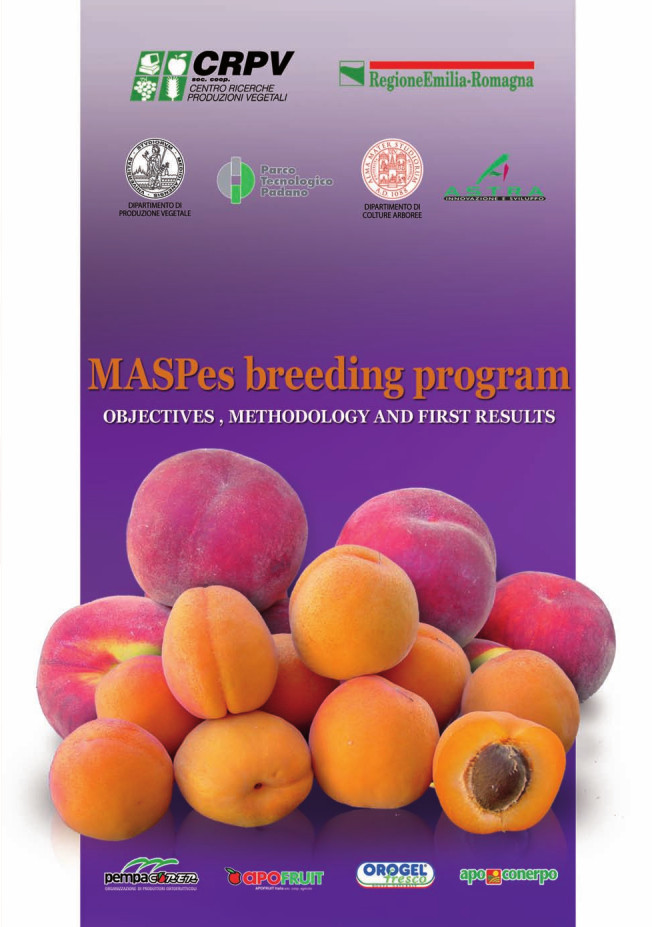 MAS.PES, is an apricot and peach breeding program, based in the south-eastern Po Valley (Italy), with the support of both public (Universities, UE projects) and private funds, including growers organizations.
MAS.PES, is an apricot and peach breeding program, based in the south-eastern Po Valley (Italy), with the support of both public (Universities, UE projects) and private funds, including growers organizations.
The program is aimed at the introduction of new cultivars adapted to the climatic conditions of the region and addressing disease resistance and outstanding fruit quality traits. Other than traditional breeding procedure, tools for marker-assisted selection are being developed taking advantage of the peach genome sequence and innovative marker platforms, even if marker identification has not been completed so far.
The breeding operations are rather standard and based on manual emasculation and pollination, seedlings establishment, and field selection carried on for horticultural, pomological and some commercial traits.
Parents are chosen within the germplasm collection or from other, often foreign, programs. Once the seedlings begin fruiting (usually at the third leaf), the selected trees are grafted and further evaluated under test trials in comparison with commercial cultivars.
The most promising selections are then subjected to more extensive trials under a non propagation agreement in private orchards.
The whole process is subjected to strict observation of the virus-free status of the trees, from the choice of the parents up to the release of a new cultivar, under the supervision of the local public Plant Health Service.
Selected segregating progenies are also assessed for inheritance studies, particularly for fruit quality traits and disease resistance. A trained panel of 18 tasters is employed to assess flavour and taste of the most promising selections, by the following quantitative descriptors: odour intensity (on cut fruit, off-flavours included), sweetness and acidity and their balance, bitter, astringency, aroma, juiciness, firmness. Finally, the panellists are asked to express their hedonistic appreciation in terms of odour, flavour, texture (as a result of firmness, juiciness, and mealiness), pleasantness, other than an overall quality evaluation. The score range is 1 to 9 for all descriptors.
The breeding stock for apricot and peach is made up of about 20,000 seedlings and around one hundred advanced selections, other than more than 500 accessions from the germplasm bank including commercial and local cultivars, other than landraces. Latest introductions have been the early ripening yellow flesh peaches ‘Pulchra®’ and ‘Bordò®’, as well as five yellow nectarines: ‘Rebus028®’, ‘Rebus038®’, ‘Rebus195®’, ‘Dulcis®’ and ‘Dulciva®’. Apricot cultivars patented in recent years are ‘Bora®’, ‘Gemma®’, ‘Pieve®’ and ‘Petra®’.

